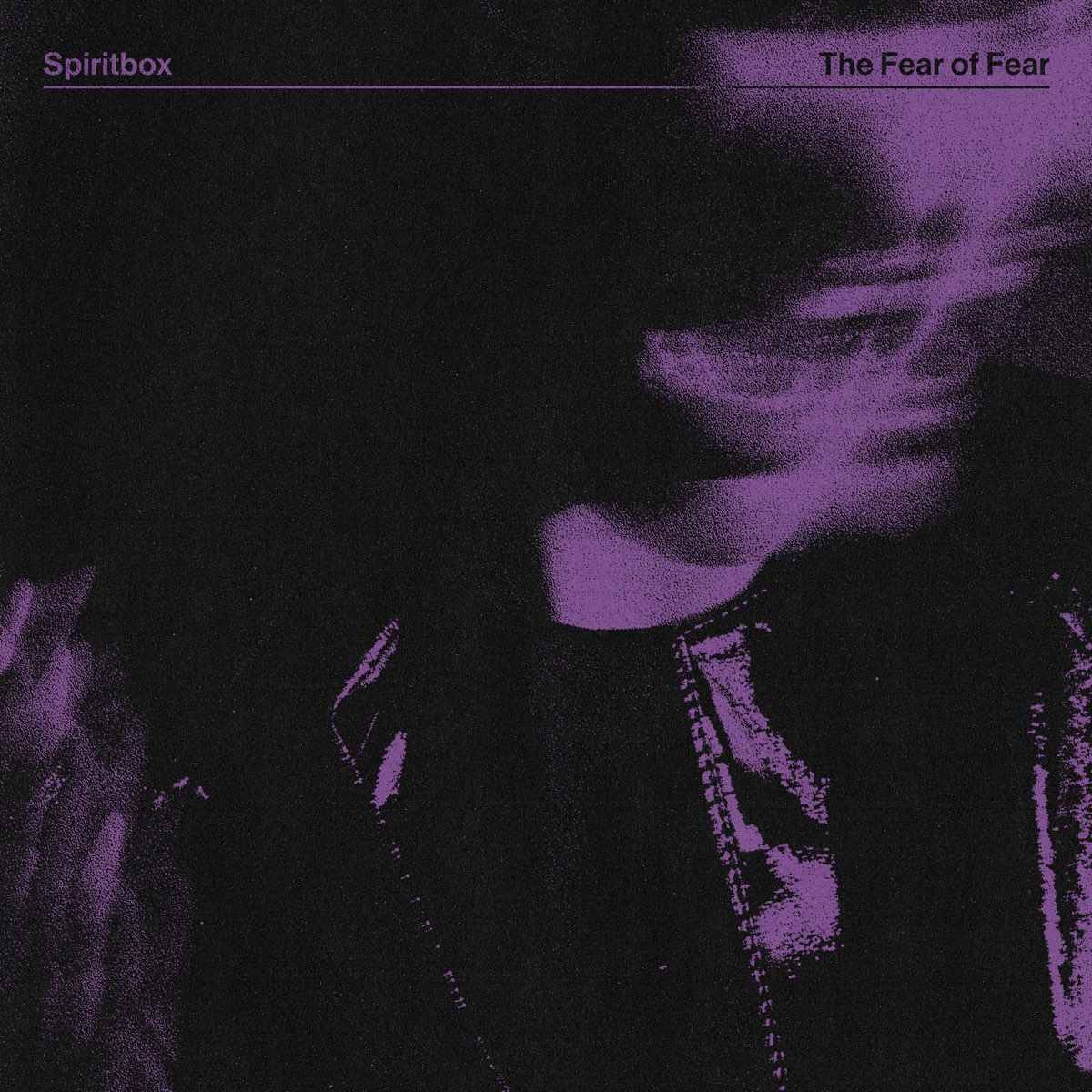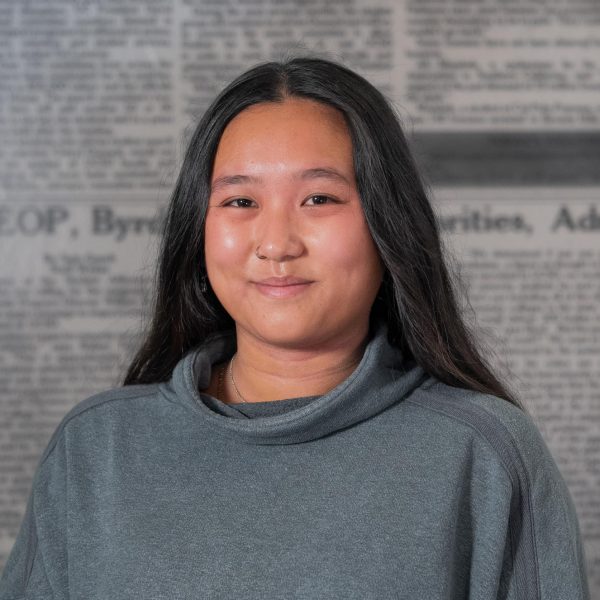Following the resounding success of their 2021 album “Eternal Blue,” “The Fear of Fear” is Spiritbox’s most ambitious project to date, with the single “Jaded” earning a Grammy nomination for “Best Metal Performance.” The digital ambience and heaviness of “Eternal Blue” put Spiritbox on the metalcore map, but “The Fear of Fear” showcases the band’s exploration of the spectrum of clean versus heavy music. Each track pushes and pulls the musicality, narrative, and atmosphere of the entire project, allowing Spiritbox to go in many different directions. Courtney LaPlante, the band’s iconic frontwoman and vocalist, also emphasizes the lyrical and emotional narrative that ties these six distinct tracks together.
“This EP is, I think, our best work ever,” LaPlante said in an interview with metal YouTuber and artist Nik Nocturnal. She’s excited for fans to come up with their own interpretations of the EP as one continuous piece.
“The Fear of Fear” starts off with a bang that is “Cellar Door,” arguably the heaviest track on the EP. The song’s opening chromatic riff burgeons with dread, then explodes into a brutal fest of chugging guitars and earth-shattering drums. Dissonant, eerie synths pierce through the sludge-like guitar riffs of the chorus to create a dark melody. While this ominous instrumental builds below her, LaPlante rips out the most fearsome growls on the entire EP, adding to the track’s doom-like atmosphere. Despite her aggressive sound, lyrics like “I can’t live in this world while I breathe in another one” scream of a desperation to free herself from a vicious cycle of pain. This determination, however, always comes too late, and LaPlante finds herself trapped in an endless loop, as embodied by the repeated chorus.
Rippling synths close out “Cellar Door” and fade into the next track, “Jaded,” an almost-too-perfect modern metalcore song. LaPlante effortlessly switches between ethereal, clean vocals and heavy screams on top of an extremely punchy beat. “Stranger Things”-type synth layers permeate the empty space between djent-y guitar riffs and rapid-fire kicks, giving the track a bounciness that contrasts with the bleak atmosphere of “Cellar Door.” On a lyrical level, while “Cellar Door” emanates feelings of hopelessness, “Jaded” dwells on self-doubt and regret with lyrics such as, “But what if I was inside a thousand lives to give my ghost? It’s never enough, it’s never enough.” Bitter at the chances she didn’t take, LaPlante questions the worth of a life lived “haunting memories faded.”
The third track, “Too Close/Too Late,” is revealed to be a mantra of the EP as a whole. On “Jaded,” LaPlante screams the words, “I know where I wanna go, but you know that it’s too close and you know that it’s too late this time,” and sings them on this track, signaling a meditativeness absent from the first two songs. LaPlante seems to almost embrace her emotional turmoil as an unquestionable facet of existence as she sings, “I feel alive again/Started with the fear of falling.” Light piano synths and an airier drum production give “Too Close/Too Late” a calmer, more alternative rock sound. The track fades with LaPlante repeating the ironic question, “Is this the end or is this the beginning?”
A creeping transition to breakbeats and dark lo-fi guitars sets the mood for the fourth track, “Angel Eyes,” a homage to the band’s progressive metal roots. The song’s contagious groove and sinister key changes are reminiscent of older songs like “Holy Roller” and “Belcarra” but with a stronger electronic element. A siren-sounding synth spears through the frenzy and radiates a sense of blind urgency bordering on madness. “Innocence is a game that I have lost,” LaPlante screams, a stark contrast to the reflectiveness of the previous track. Panic sets in as she continues with, “I’m trying to keep it/Any sense of the frame that I have lost.” In the gratifying breakdown, however, LaPlante takes charge of her fate when she screams, “This time I break the mirror when I die/The hourglass inside my mind/Turn it once to touch the sky.”
“The Void,” a refreshing concoction of melodic, dancey, and heavy, provides a much-needed palate cleanser after the mad rush of “Angel Eyes.” The song’s layered ambient synths, branching guitar runs, and soaring drum-and-bass beat inspire the thrill of running wild and free in the shadows. LaPlante’s serene and expansive vocals find a perfect niche in the energetic mix, a testament to top-tier production quality. Amidst the EP’s existential chaos, the void represents to LaPlante a place of true solitude and freedom, where her “fears all go when they die.” She feels empowered to “touch a razor blade to the sky” and break free from the shadows holding her back.
Nothing on this EP outshines the delicate beauty of “Ultraviolet,” the sixth and final track. LaPlante’s vocals take center stage, but the magic happens on the periphery. The pulsating techno beat of the intro plateaus into a sparkling soundscape as her voice rises into the emotional chorus. She belts longingly, “If you could meet me in another life and we could burn into the velvet sky/Dream I die, dream I die,” as vibrant, swirling layers of guitar and synths evolve and trail under her. Although remnants of her struggle remain (“a cold emotional vampire”), “Ultraviolet” brings closure for LaPlante, who basks in a newfound clarity and patience with which she will heal. Like a shower of stars, the instruments in all their glory swell and crash around LaPlante’s final message: “You know where you wanna go/Never too close, never too late/There’s always time.”
“The Fear of Fear” is the epitome of Spiritbox’s ability to switch and combine styles, moods, and genres. Spiritbox has always had a unique affinity for emotionally driven songs, but whether they are metal-passing or not isn’t always an artistic priority for the band. Their forward-thinking songwriting and refusal to confine themselves to metalcore boundaries are what keep them exciting for old and new audiences.
Image courtesy of Apple Music










